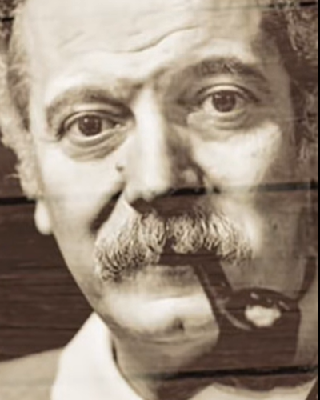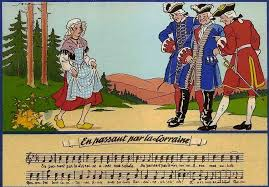Les sabots d'Hélène
Helen's clogs
Georges Brassens (1955)
|
|
|
1) Hélène Malet-Orsal, la femme d’un “bougnat” du 11ème Arrondissement (marchand de charbon qui faisait aussi café), n’était pas originaire d’Auvergne, comme la plupart de ces cafetiers parisiens, mais d’Aubrac Le Cayrol dans l’actuelle région Midi Pyrénées. Toute sa vie elle eut la réputation d’être l’Hélène de la chanson de Brassens. Elle mourut en 1992 dans son village natal. 2) Dans la chanson d’origine “En passant par la Lorraine” il est question de trois capitaines qui traitent Hélène de haut à cause de ses vêtements de paysanne, pauvres et sales. Les paroles en sont: Avec mes sabots, Ils m'ont appelée "Vilaine!" Avec mes sabots... Brassens, cela va de soi, n’aimait ni les m’as-tu-vu, ni les militaires. 3) Dans la chanson populaire, la paysanne fait savoir aux officiers hautains que le fils du roi l’aime. Il lui a offert un bouquet de marjolaines, qu’elle va planter dans la plaine. Si elles fleurissent, elle sera reine. 4) Comme pour la plupart des chansons de Brassens sur ce site, ces notes sont tirées du blog de David Yendley (http://dbarf.blogspot.fr/2011/01/). La traduction chantable anglaise est basée sur sa traduction en prose. |
1) Hélène Malet-Orsal, the wife of an 11 Arrondissement coal merchant who also served wine and coffee, did not originate from the Auvergne, as most of these Parisian pub owners, but from Aubrac Le Cayrol in the Midi Pyrénées region. She spent her life in the reputation of being the Helen in Brassens' song. She died in 1992 in her native village. 2) In the original folk song “En passant par la Lorraine” there are three army captains who treat Helen with contempt because of her poor, dirty peasant attire. The original song reads: Avec mes sabots, Ils m'ont appelée : Vilaine ! Avec mes sabots... Brassens, of course, was antipathetic to social snobbery and the military. 3) In the folk song, the peasant girl informs the disdainful officers that the King’s son is in love with her. He had given her a bunch of marjoram plants, which she has planted on the plain. If they flower she will become Queen. 4) Like for most of the Brassens songs at this site, these notes are borrowed from David Yendley's blog (http://dbarf.blogspot.fr/2012/05/alphabetical-list-of-my-brassens-songs.html). This singable translation is based on his prose translation. |
 Brassens chante "Les sabots d'Hélène" |

